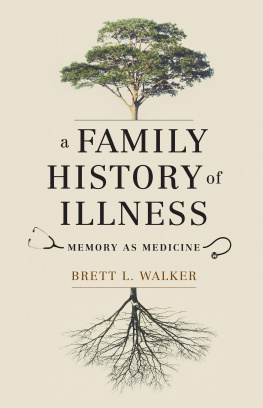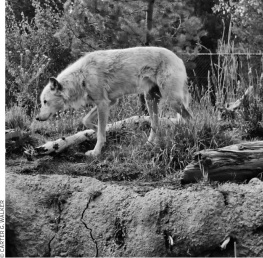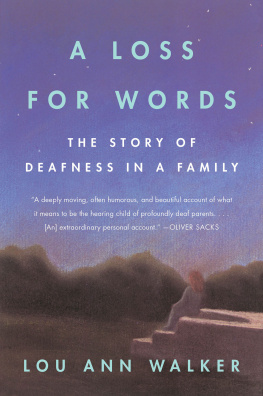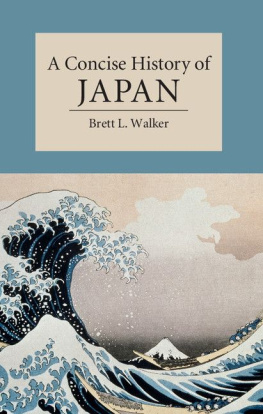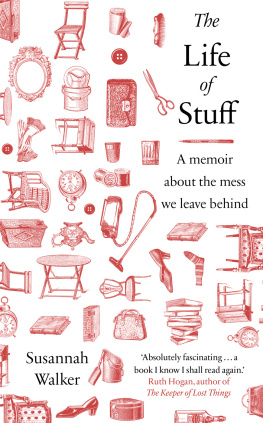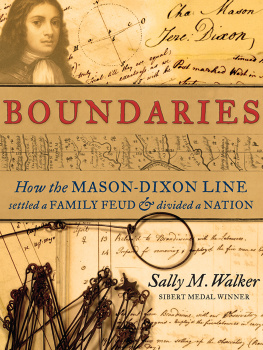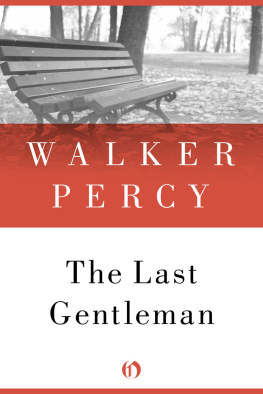
A FAMILY HISTORY OF ILLNESS
a FAMILY HISTORY of ILLNESS
MEMORY AS MEDICINE
Brett L. Walker
A MCLELLAN BOOK
UNIVERSITY OF WASHINGTON PRESS
Seattle
A Family History of Illness was supported by a grant from the McLellan Endowment, established through the generosity of Martha McCleary McLellan and Mary McLellan Williams.
Copyright 2018 by the University of Washington Press
Printed and bound in the United States of America
Design by Katrina Noble
Composed in Electra, typeface designed by William Addison Dwiggins
222120191854321
All rights reserved. No part of this publication may be reproduced or transmitted in any form or by any means, electronic or mechanical, including photocopy, recording, or any information storage or retrieval system, without permission in writing from the publisher.
UNIVERSITY OF WASHINGTON PRESS
www.washington.edu/uwpress
LIBRARY OF CONGRESS CATALOGING-IN-PUBLICATION DATA
Names: Walker, Brett L., 1967 author.
Title: A family history of illness : memory as medicine / Brett L. Walker.
Description: Seattle : University of Washington Press, 2018. | Includes bibliographical references and index. |
Identifiers: LCCN 2017028010 (print) | LCCN 2017031983 (ebook) | ISBN 9780295743042 (ebook) | ISBN 9780295743035 (hardcover : acid-free paper)
Subjects: LCSH: Walker, Brett L., 1967Health. | Walker, Brett L., 1967Family. | Walker, Brett L., 1967Homes and hauntsMontana. | Immunologic diseasesPatientsUnited StatesBiography. | Genetic disordersPatientsUnited StatesBiography. | FamiliesPsychological aspects. | HistoryPsychological aspects. | MemoryPsychological aspects. | Farm lifeMontana. | MontanaBiography.
Classification: LCC CT275.W24518 (ebook) | LCC CT275.W24518 A3 2017 (print) | DDC 920.009786dc23
LC record available at https://lccn.loc.gov/2017028010
Photographs are from the authors collection, excepting those of Charles Janeway with microscope (p. 42; Boston Childrens Hospital Archive, Collection MC7, Box 5, Folder 13), Charles Janeway protesting (p. 49; Boston Childrens Hospital Archive, Collection MC7, Box 6, Folder 33), Ogden Carr Bruton (p. 81; National Archives photo 111-SC-32178), and the Menace newspaper (p. 157).
To my kin, who all immigrated to the United States at some point
CONTENTS
ACKNOWLEDGMENTS
This book started to take shape during a year spent teaching at Harvard University beginning in the fall of 2015. One evening, while dining with David Armitage, who chaired the Department of History at the time, I told him about the project and what I was trying to accomplish with it. I had struggled with how to narrate such a personal story, and how to make it intellectually substantive while still retaining the flavor of a memoir, and I floated some possible titles by him. While we sipped our beers, he took a pen from his bag and wrote A FAMILY HISTORY OF ILLNESS in large block letters on the paper tablecloth. Thats your title, he said. Indeed, that became the title, as well as the central theme of the book. I still have the piece of tablecloth, and now I have this book, in part because of Davids support and suggestions.
I learned a great deal during my year in the Boston area, and I owe the opportunity to Ian Miller, my friend and colleague. Harvard buzzed with intellectual energy, and my batteries needed recharging. I am indebted to both the Reischauer Institute for Japanese Studies, my principal sponsor at Harvard, and the Department of History, the academic home of the courses I taught, for making my visit possible. Ted Bestor, faculty director of the Reischauer Institute, and Stacie Matsumoto, the assistant director, also made my visit possible and saw to my every need, including a helpful research stipend.
On my return to Bozeman, colleagues, friends, and family read my fledgling manuscript and offered valuable insights. LaTrelle Scherffius, my wife and partner, read an early draft of the manuscript and offered many important editorial suggestions and inspirational support, as did my father, Nelson Walker. My mother, Linda Walker, gave endless support and watched the Reese Creek home front while we lived in Cambridge. My stepson and a philosopher, Andrew Scherffius, taught me how to interpret Heideggers Being and Time, which was no small task. My colleague Michael Reidy read the entire manuscript and offered a lively critical assessment, as did my colleague Dale Martin. Tim LeCain allowed early access to the manuscript of his forthcoming book, The Matter of History. Gregg Mitman read the manuscript for the press and transformed the book with his smart suggestions. Kirk Branch delivered enthusiastically a pronouncement or two about adverbs. Julie Van Pelt at UW Press offered many effective suggestions. I also received helpful comments from an anonymous reader for the press. At Montana State University, I receive generous support for my research program from Nic Rae, dean of the College of Letters and Science, and Renee Reijo Pera, the vice president for research and economic development. Scott Smiley did the outstanding index.
This book would not have been possible without the support of Harvard Universitys Countway Library of Medicine and the Houghton Library, as well as the Boston Childrens Hospital Archive, the Massachusetts Historical Society in Boston, the Montana Historical Society in Helena, Montana State Universitys Renne Library, and Princeton Universitys Registrars Office. A Guggenheim Fellowship funded some of this research. I appreciate the patience that my ninety-five-year-old grandmother, Frances Dwyer, exhibited while I recorded our many conversations about my Montana familys history, usually at Taco Treat. I also grilled my parents and other family members about family-related questions for years as I gathered information for this project, including quizzing my brother, Aaron, about his memories. I discovered aspects of my family history during this project that proved a little jarring, but everybody kept a brave face.
Many people supported me and nurtured me as I recovered in the months after my hospitalization in 201011, and I will always be grateful to them, particularly Christine Marran and Ben Swartz. Ill always remember the heroic efforts of the team at the University of Minnesotas Health Center, including those of my doctor Greg Vercellotti. I am indebted to the nurses at the Bozeman Health Cancer Center, where I receive my monthly infusions, and to my doctor in Bozeman, Luke Omohundro. Ashs Okinawan Karate was a gem, and I owe Lisa and Brian a debt of gratitude for keeping me disciplined and healthy. Mostly, my deepest appreciation goes to my parents and brother, Linda, Nelson, and Aaron, and to LaTrelle, Liz, Andrew, Wayne, May, Fiona, and Simona, for being my family.
A FAMILY HISTORY OF ILLNESS
PROLOGUE
Nightmares
I AWOKE STARTLED AND FEVERISH. WHERE AM I? I thought. The back of my head pounded. I was thirsty and drenched in sweat. When I coughed, the pounding intensified and ripped along the center of my scalp toward my forehead, piercing a point between my eyes. A white hospital gown clung to my shivering body. The vision in my right eye became blurrier the more I hacked. My neck and shoulders tensed as I turned my head to look out a window near the bedI saw only the inky black of the night sky.
I lifted myself upright to get a better view, and the sweaty hospital gown tightened around my shoulders, the fabric constraining me and chafing against my skin. I could feel tape tugging at the hairs on my arms and face, tying me to clear plastic hoses. I vaguely remembered that these tubes were important: they tethered me to rhythmic pumps and spherical tanks that kept me alive. I raised my body a little higher and, turning my head again, peered out the window, looking for clues to my whereabouts.
Next page
